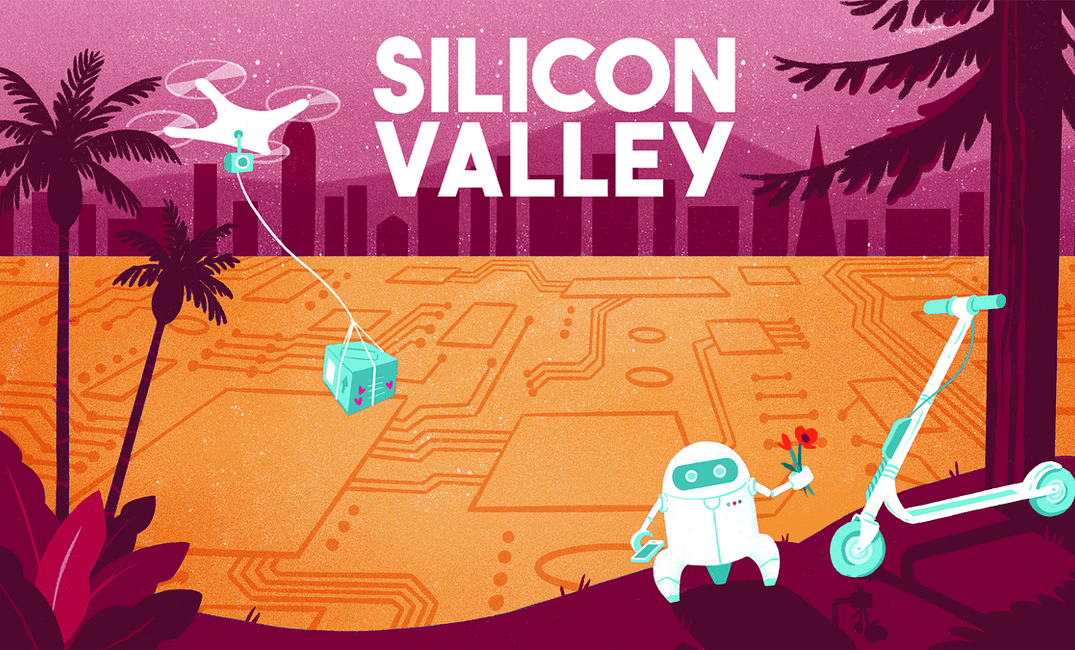The Weirdest Shit to Come Out of Silicon Valley
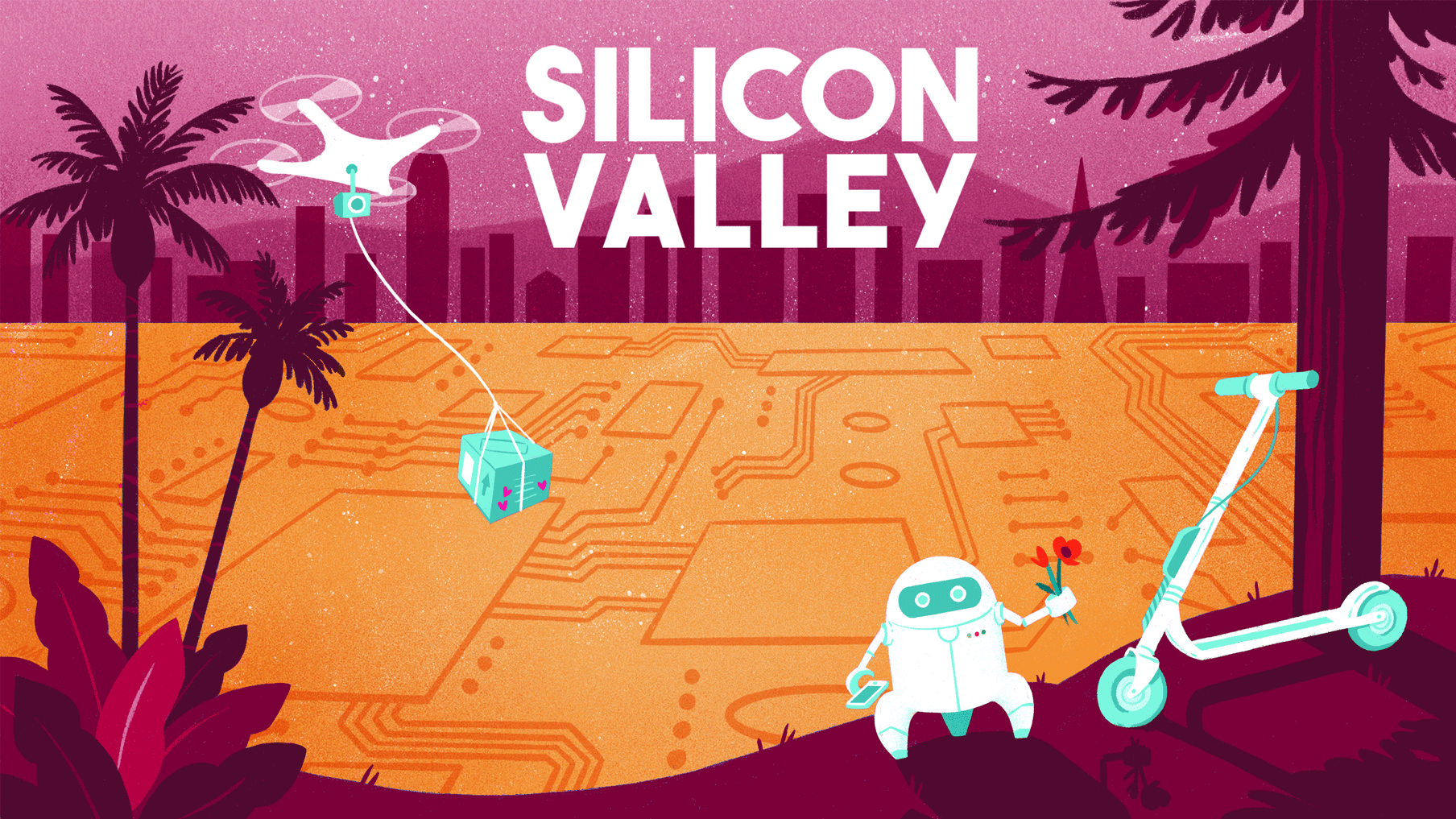
The fall edition of Two Truths and a Lie, the Silicon Valley Startup Edition is going drone-themed; the new space race has me looking to the skies.
Out of the following three startups, which is the fake one? One that sells drones to clean the outsides of houses? One that provides submersible fishing drones that carry bait? Or one that trains drones to play instruments? (Scroll to the bottom for the answers.)
Coming soon: a voice-activated AI bot that takes your order
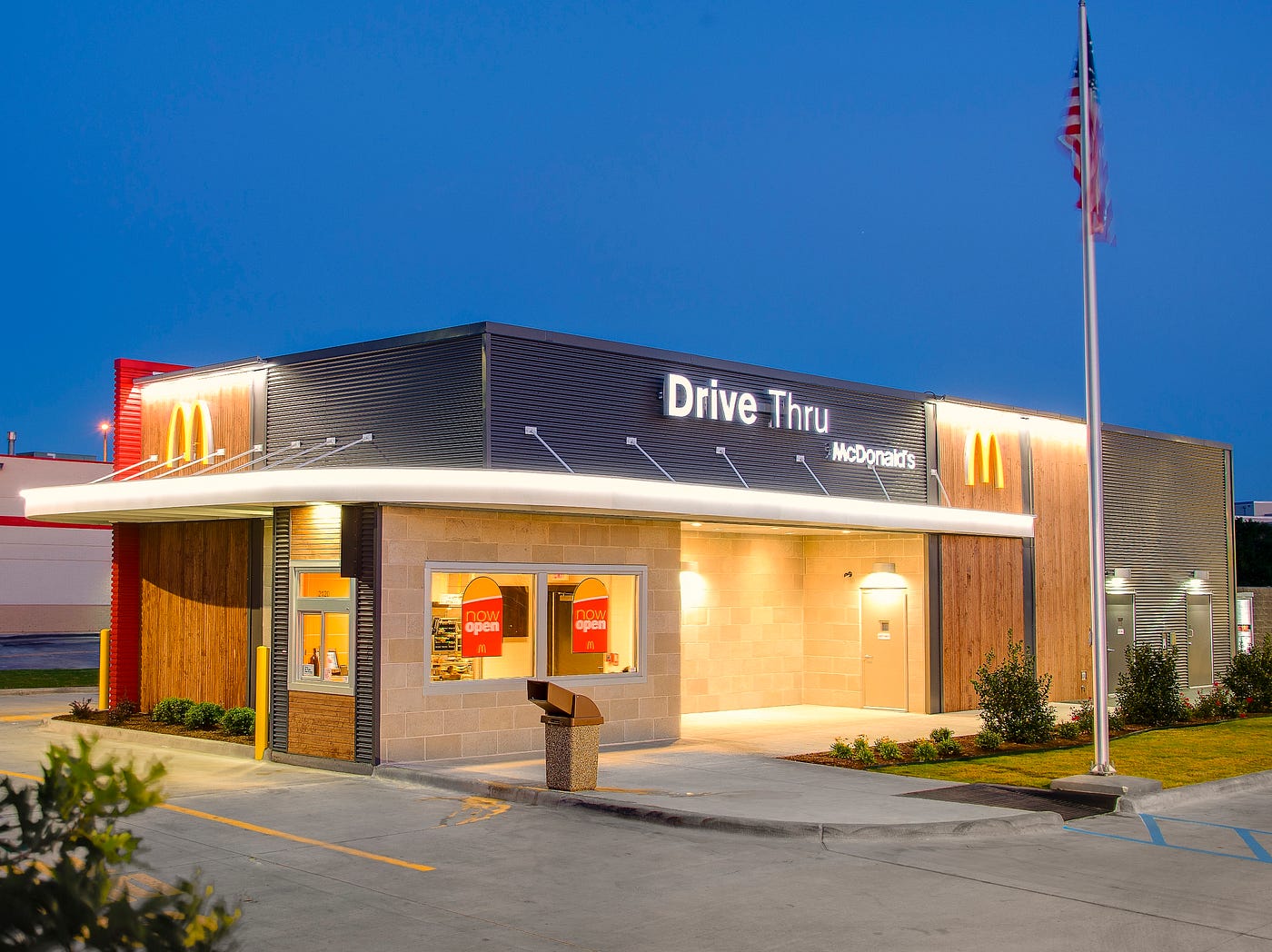
Ordering from a drive-through offers an interesting window into how cultures diverge. There are different accents, different menu items, and different levels of patience for repeating “No mayo. I said hold the mayoooo, please” and “Yes, just a vanilla cone, thanks.” Well, Mickey D’s thinks it can alleviate this strain by eliminating the human part of this encounter; the fast-food giant recently purchased Apprente, a conversational language AI bot, to help make the drive-through experience seamless, according to the Chicago Business Journal.
Goodbye, grumpy drive-through guy. Hello, voice-activated chatbot that aims to give me my order quickly and tells me to have a nice day—and even means it, inasmuch as an AI bot can mean anything. The bot speaks a number of languages, which fixes one problem, and it will offer “faster, simpler, and more accurate order taking.” The Apprente team will work out of McDonald’s brand-new Silicon Valley incubator, McD Tech Labs, and will oversee new tech acquisitions.
“I Love You, Colonel Sanders!” — the dating simulator

In the fast-food world, when it rains, it pours. McDonald’s announces that it’s getting a Silicon Valley lab, and KFC gets a…dating simulator. Yeah, for reals. Out on September 24, the game is titled “I Love You, Colonel Sanders! A Finger Lickin’ Good Dating Simulator.” Now I’m not exactly a dab hand at the dating-simulation world, given that my last attempt was to play My Horse Prince, but this is next-level loving. “Do you have what it takes to be the business partner of and win the heart of the most famous chicken salesman of all time? Play to find out! Go ahead. Colonel Sanders is waiting.”

You play a culinary student learning how to sizzle those wings alongside super-hot chef in training Colonel Sanders. If you please your teachers (one of whom is a corgi named Professor Dog, naturally), you advance in your training—and maybe your love life as well. You might even get better at real-life cooking, as recipes are included, and you’ll get to make KFC’s newest menu item, the Mac & Cheese Bowl covered in popcorn chicken and cheese.
Slate got the lowdown on this game from KFC’s U.S. chief marketing officer, Andrea Zahumensky, confirming that this is not a joke. “We have embraced the personality of the real Colonel Sanders,” she said, “who was an over-the-top, feisty chicken salesman known for always finding a way to sell more Kentucky Fried Chicken.”
A 3-D-printed steak dinner
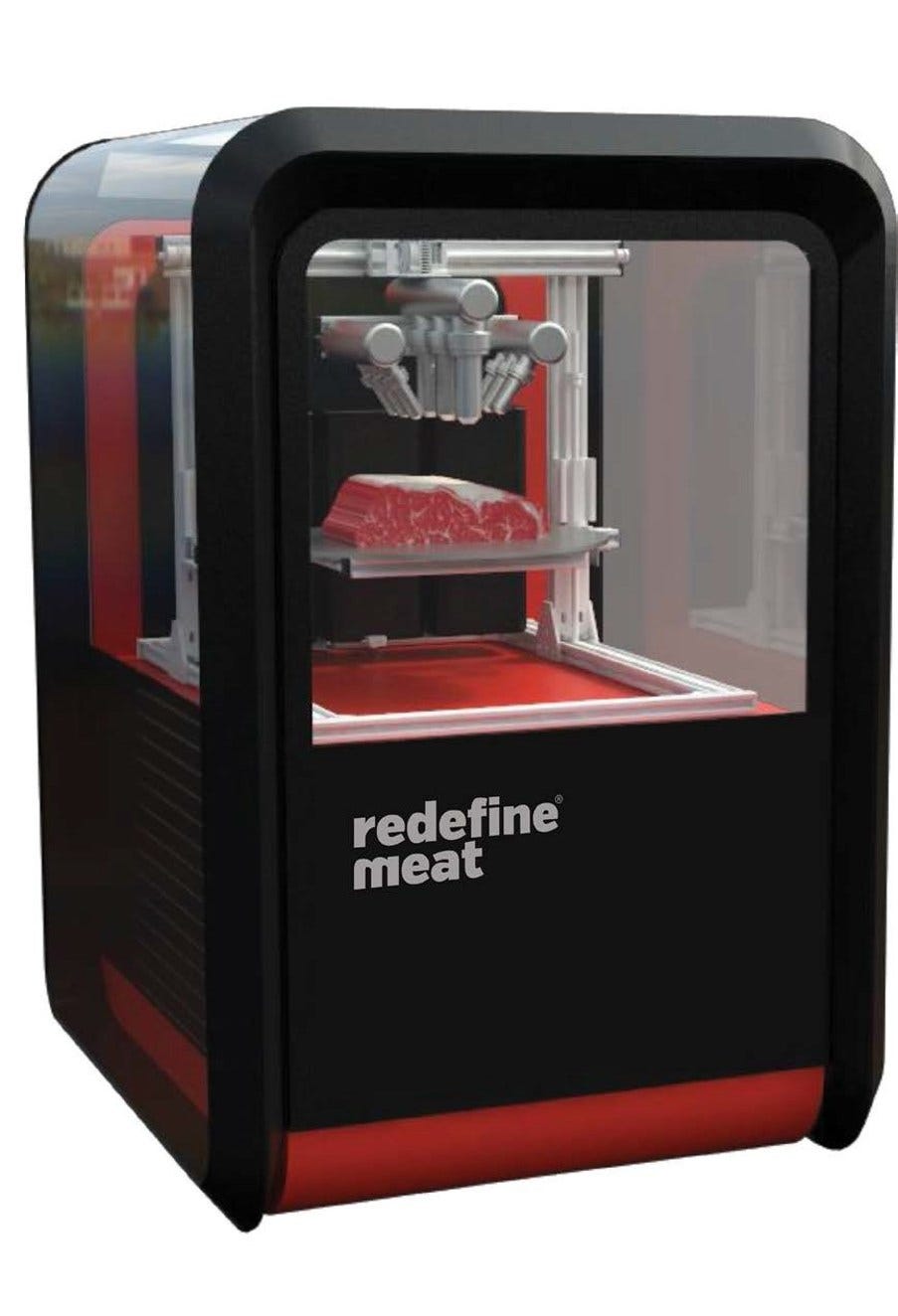
We’re having a real meat moment right now in Startuplandia. There’s lab-grown meat, plant-based meat, and fake meat galore. Impossible burgers and Beyond patties are even mainlining it at Burger King and McDonald’s. Now we can add 3-D-printed meat to that list.
The Spoon reports that alt-meat startup NovaMeat has been pushing its printed patty for barely a year. What makes it different from other companies is that its 3-D-printing tech produces fake meat with the “fibrous” texture of the real thing. The science gets confusing but involves syringes full of plant protein that extrude the faux meat to mimic animal muscles. That doesn’t sound appetizing, but venture capitalists, at least, seem to believe in NovaMeat’s mission — it just announced a seed round of $2 million in funding from New Crop Capital (which also funded Kite Hill and Beyond Meat).
NovaMeat isn’t even the only 3-D-printed meat in the game; earlier this month, Redefine Meat announced that it has raised a $6 million round, planning to bring its plant-based meat printer to market next year for around $100,000, with restaurants and partners getting first dibs. But before you scratch your head and say, “That’s a lot of fuss about a posh veggie patty,” know that Redefine Meat’s M.O. is that its alt-meat “delivers the same appearance, texture, and flavor of animal meat used for steaks, roasts, and stews.” Redefine Meat launched in 2018, so that’s pretty amazing progress from such a new player in the alt-meat game. Redefine is in the beef space for now, but pork and tuna are also on the radar.
Your hair straightener can be hacked

Anyone who’s ever painfully dragged a comb through their hair knows the allure of a good hair tool. Smooth and silky locks at the touch of a button? Why, yes, of course. But with hair tools these days reaching temperatures of 450 degrees or more, using these products has become an act of courage and skill.
Now—because why the hell not?—one company has decided that what’s missing from this stressful endeavor is an extra serving of danger. Yup, Glamoriser has launched a pair of hair straighteners with a clearly much-in-demand Bluetooth-connectivity feature. Using an app, users can adjust the tool’s heat and style settings; temperatures range from 122°F to 455°F. The hair straighteners can also be turned on and off remotely. Would a simple button to do that have been too much work to create? The company launched this last year, and their product hasn’t sold too well, judging by the 35% discount on the website.
One new aspect of the hair straighteners is that security researchers at Pen Test Partners have turned their ninja skills in Glamoriser’s direction and noted that the tools are easy to hack, TechCrunch reports. So any hacker with a mean-girl streak could theoretically choose to fry your hair, or remotely turn on your hair iron and burn down your crib. This is a real problem, even without the hacking part; around 650,000 fires in the U.K. alone have been caused by hair tools. Beauty is dangerous, people.
The rise of tattletale apps
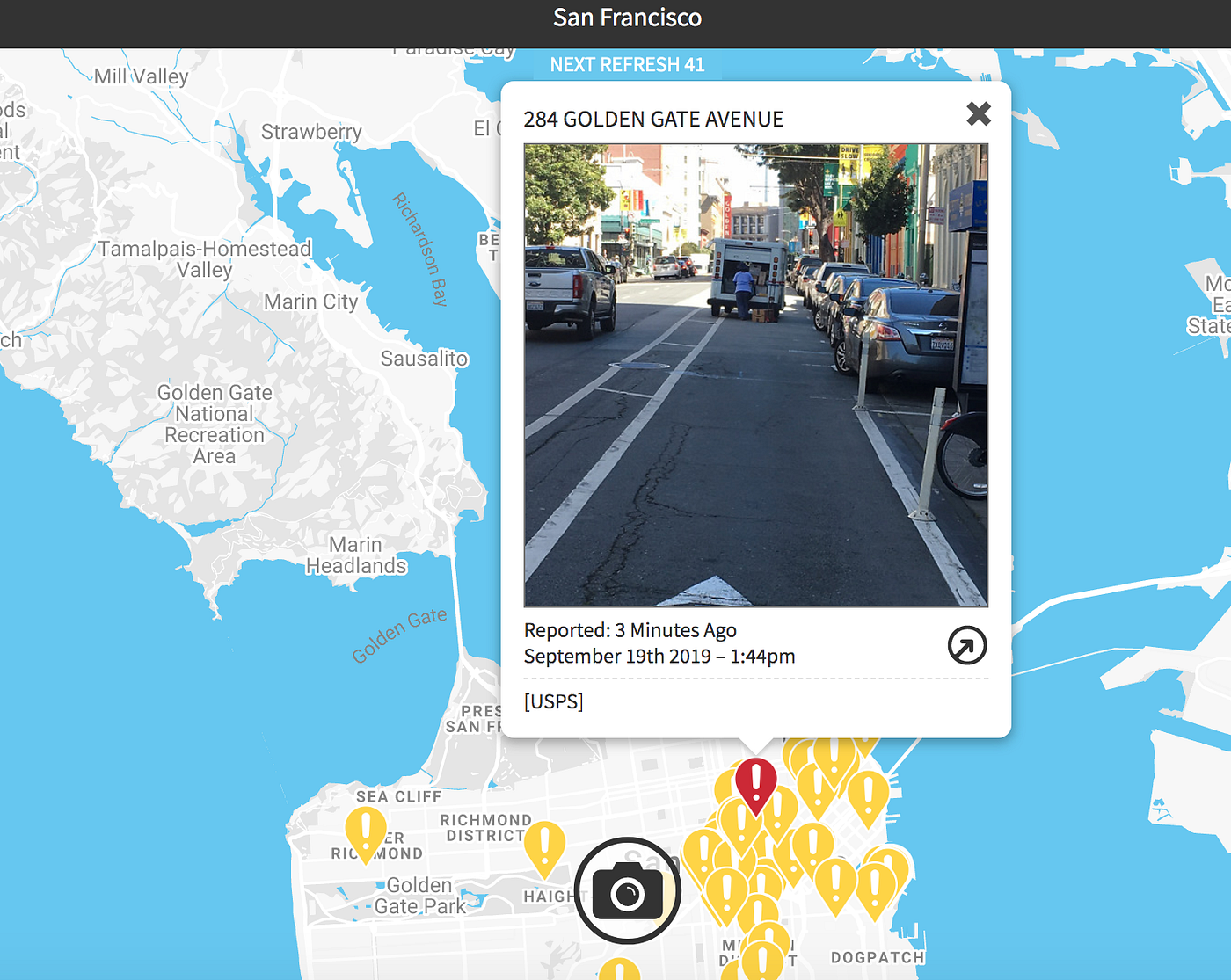
For better or worse, we live in an increasingly connected society. San Francisco may have banned city agencies from using facial-recognition technology, but the good old human retina is a close second to that tech. With neighborhoods lacking community and connection, citizens are using tech to replace conversation in lieu of complaints, notes The Atlantic. Pissed that a bike lane is blocked by a soccer mom? Steaming about the salad guy who left his truck in a disabled spot? Now you can snap a picture of the offending automobile and upload it to Safe Lanes, an app that cross-references your GPS coordinates with a scan of the car’s license plate, auto-populating a complaint form that you can submit to the city. They get a citation — and voilà, your problem is solved! Neighborhood Watch just got into the gadgetry game.
To be sure, Safe Lanes isn’t the only “Let’s keep a check on them” app — you have Nextdoor and Citizen, among others, but this is one where the reward and punishment are clearly laid out. Supporters say this can save lives, hold vehicles accountable for their behavior, and lower cyclist deaths — and that cities don’t take action till they get the cold hard data. Others say this is just another embarrassing example of technology impinging on human privacy. Everyone has a point.
Toys “R” Us now has an Instagram experience

When Toys “R” Us famously closed down, we thought we’d seen the end of their mascots, that infernal monkey and Geoffrey the Giraffe. But in true millennial style, nothing ever really goes away; it just gets reinvented for a new audience. Enter Toys “R” Us the pop-up experience, an Instagram-planned extravaganza co-hosted by Candytopia (a competitor to the Museum of Ice Cream and its opportunities for sickly sweet pastel ’gramming) and Tru Kids, which purchased the Toys “R” Us brand name. For the princely sum of $28 for adults and $20 for kids, Forbes reports, you get absolutely nothing tangible, but your li’l ones will get to experience “over eight mind-blowing rooms” filled with brands that they’ll then clamor for you to buy. So instead of going to a Toys “R” Us for that experience, you now pay for it. The first two venues open in Atlanta and Chicago next month.
Answers to Two Truths and a Lie: The musical-drone startup is the fake one (though KMel Robotics did do this before they were bought by Qualcomm). Lucid Drones are designed to hose down the exteriors of buildings, and the AguaDrone is a submersible drone that uses sonar to track fish and a carries a bait payload.



